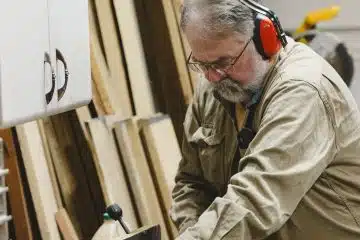Priests must lead revival of reconciliation
September 1, 2012
By Father Earl Fernandes
The Year of Faith, marking the 50th anniversary of the opening of the Second Vatican Council, will begin on Oct. 11.
It is directed toward appropriating Vatican II, studying the Catechism, renewing faith, and spurring on the new evangelization. The new evangelization is intimately connected with the sacrament of penance, which itself needs renewal. Vatican II’s document on the liturgy Sacrosanctum Concilium (n. 72) stated: “The rite and formulas for the sacrament of penance are to be revised so that they more clearly express both the nature and effect of the sacrament.”
The revision of the Rite of Penance did not bring the desired renewal. Quantitatively, there has been a steady decline in the number of people regularly receiving the sacrament; this decline was measured and studied by the German bishops in the 1970s and the American bishops in the 1990s. The qualitative decline in appreciation of the sacrament of reconciliation has been measured by Center for Applied Research in the Apostolate (CARA), whose report “Sacraments Today: Belief and Practice among U.S. Catholics,” which polled 1,007 self-identified adult Catholics and compared responses from pre-Vatican II (born between 1943 — 1960), post-Vatican II (born between 1961-1981) and millennial Catholics, found that among Catholics attending Mass once a week, only two-thirds found the sacrament even somewhat meaningful.
In a recent address to priests, Pope Benedict noted: “The new evangelization draws its lifeblood from the sanctity of the sons and daughters of the church, from the daily journey of personal and communal conversion to an ever more profound conformity to Christ. And there is a close connection between sanctity and the sacrament of reconciliation, testified to by all of the saints of history. The true conversion of hearts, which is an opening up to the transformative and renewing action of God, it is the “engine” of every reform and it translates itself into a true evangelizing force.”
Are we running on empty? Why isn’t the renewal in the sacrament happening? Bishops, priests and theologians suggest the decline is due to a loss of the sense of sin. The lay faithful, while agreeing, also mention that they experience “reconciliation” in other ways. Historians agree that Christians have always found it difficult to examine their consciences and articulate their sins; this is not a new phenomenon, even if some feel that previous generations were better prepared for the sacrament. Many people “confess” not knowing even where to begin. Pope Benedict XVI calls this an “educational emergency.” It is an emergency precisely because it threatens the idea that people can have a fundamental encounter with and experience with the truth that sets a person free. It is this encounter which opens hearts to the Lord, just as St. Paul’s encounter led to the evangelization of the Gentiles.
Recently, while on retreat the retreat master offered an interesting thought, whether one agrees, as to why the renewal has floundered: priests don’t take the sacrament seriously themselves. The majority of priests, he held, no longer confessed themselves. If priests didn’t take the sacrament seriously, how could they expect their parishioners to take it seriously? He asked, “Do your parishioners believe that you confess your own sins regularly? Do you?”
He suggested that while some priests show heroic availability in hearing confessions, for others it is a low priority, even a burden. While some priests regularly confess, some may never confess. Again, he challenged the retreatants by suggesting that the lay faithful should ask themselves if they know a priest whom they trust with their conscience, and if they know such a priest, they should go to him. If they don’t know one, they should start looking. People endlessly search for the best doctors whom they trust and reveal every little medical condition seeking healing. Perhaps, we ought to make that kind of effort when it comes to the healing of the soul, so that Christ the most trusted of physicians ,may heal the whole person.
Father Fernandes is an assistant professor of moral theology and dean of the Athenaeum of Ohio/Mount St. Mary’s Seminary.













